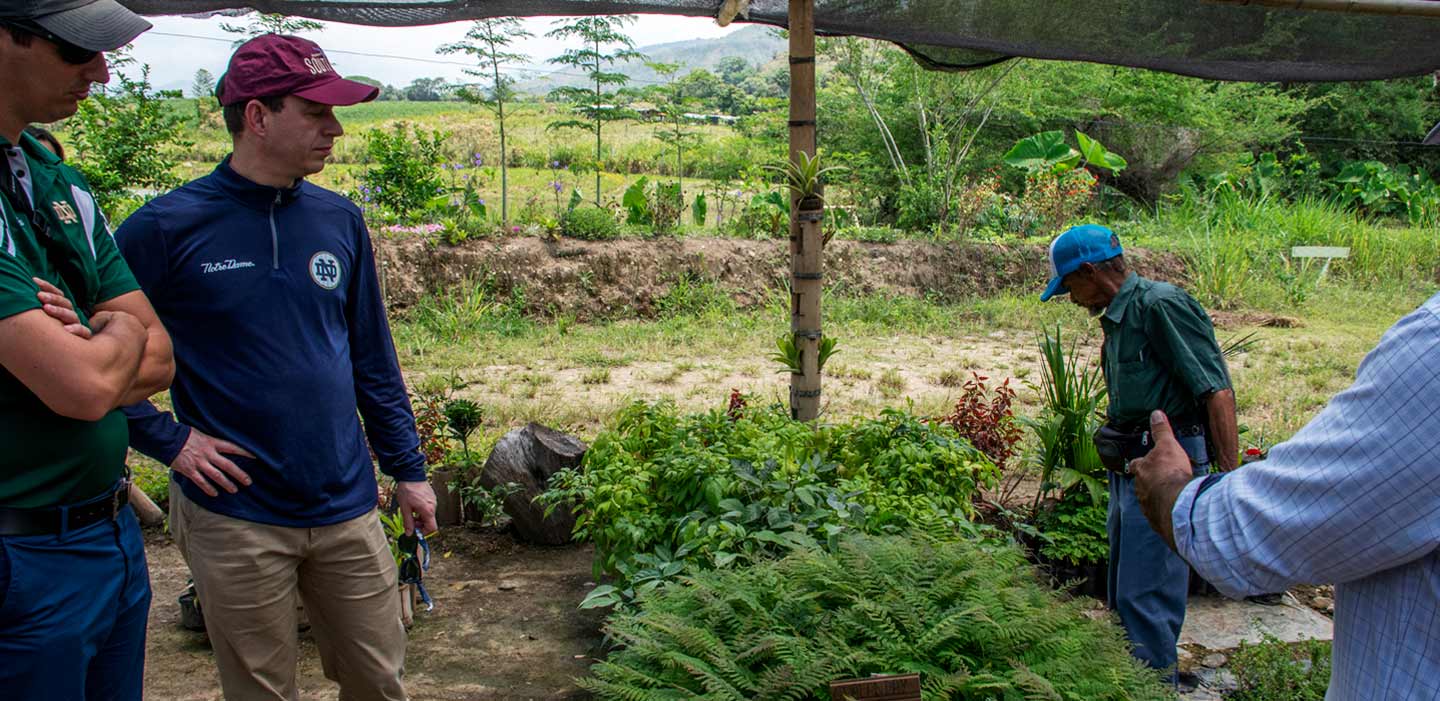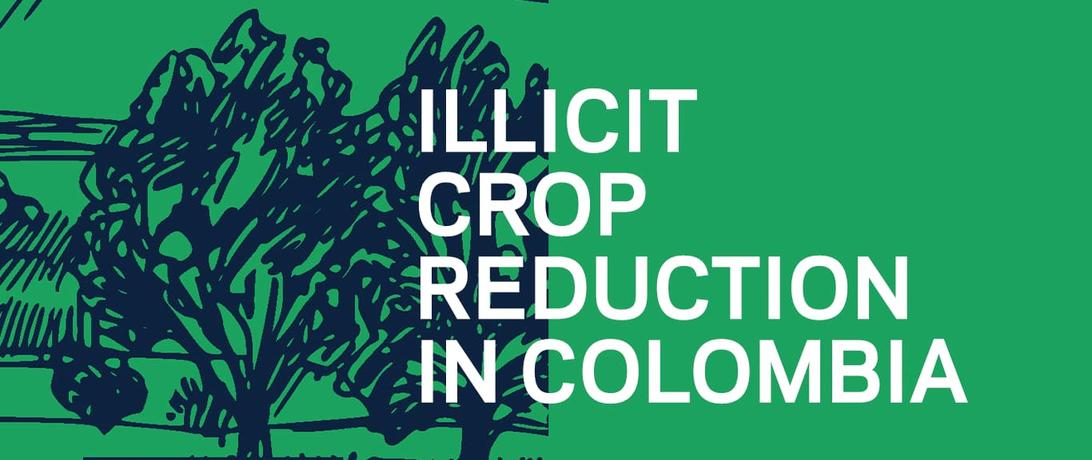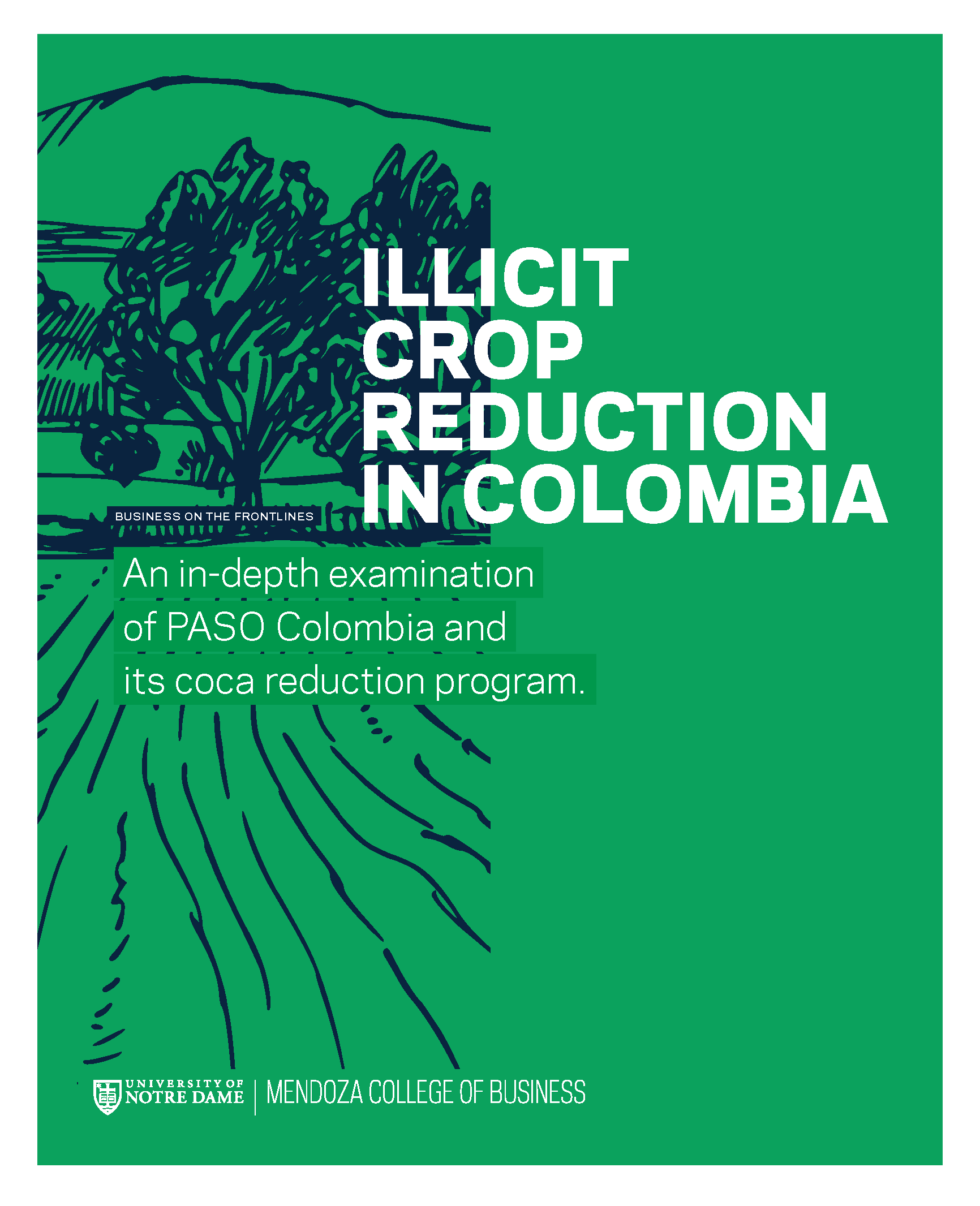
Read the full report from the University of Notre Dame.
The partnership that PASO Colombia has maintained with the University of Notre Dame since 2018 has given rise to a report that contains significant praise from professors and graduate students of its School of Business. To produce this report, they conducted an in-depth review of the Contingency Plan to Support Ex-coca Grower Families, in light of best practices in reducing illicit crops worldwide. The university team provided valuable recommendations for phasing out the program based on its successes to date, as well as creating a cross-project network to share resources, ideas, and lessons learned, calling it the "network of hope." The idea is to create a collaborative network between the different PASO projects – the Contingency Plan to Support Ex-coca Grower Families and the Rural Alternative Schools (ERAs) – to generate synergies and increase their impact in the economic and social spheres in peace-building.
“It is truly rare to find an organization that combines the pragmatism of market-driven solutions, the vision of a unified society and the compassion to look past the consequences of impossible choices in order to see human beings. PASO combines these elements with hard work and resilience to serve the present and the future of Colombia.”
Joe Sweeney, Mendoza College of Business University of Notre Dame, BOTFL Instructor
THE PASO MAGIC
The report also highlights key improvements with which PASO Colombia has contributed to the coca substitution process that strengthens peace-building efforts in rural communities. The report speaks about PASO’s magic to refer to a comprehensive approach in which building trust and respecting the dignity and human condition of the participants has been a determining factor. This trust, says the Notre Dame report, is based on the recognition that people's capabilities are the greatest asset of communities. This “builds agency among program participants as they see PASO support their ideas, thereby fostering true collaboration toward better solutions.”
Complementing this, the communal approach summons campesinos (rural farmers), ex-coca growers and ex-combatants to work the land that was once violently disputed, acting “as a social fabric that brings communities back together after years of isolation and mistrust.”
The market-driven approach was also highlighted by the report, as it creates “opportunities for campesinos (peasants) to produce something that will allow them to support themselves”, integrating “relevant market information into production decisions”.
ABOUT THE EXAMINERS: BUSINESS ON THE FRONTLINES PROGRAM
The Business on the Frontlines (BOTFL) program at the University of Notre Dame examines the impact of business in societies rife with deep poverty and conflict. Mendoza College of Business partners with local organizations, including NGOs and businesses, to harness the dynamism of business to promote stability and economic opportunity. BOTFL teams have worked on more than 55 projects in at least 25 countries. Since 2018, the university’s BOTFL program faculty and student teams have made seven field visits to Colombia, visiting 21 municipalities in seven departments, conducting fieldwork with ex-coca growers, ex-combatants, and rural farmers. They also conducted workshops with analysts, international leaders and policymakers in Colombia and the USA, and made a systematic review of primary and secondary information.
Read the full report from the University of Notre Dame.

